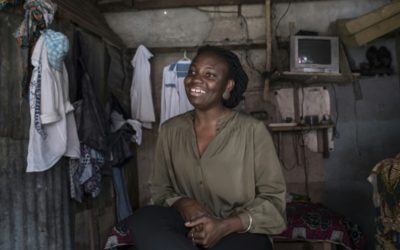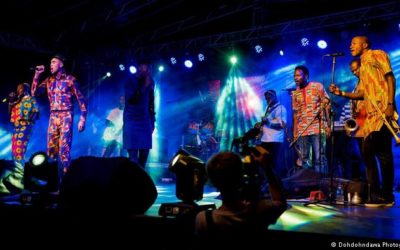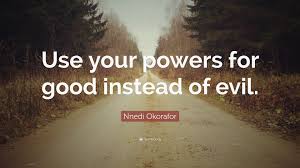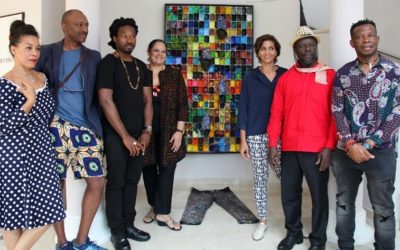John Campbell and Matthew Page’s “Nigeria: What Everyone Needs to Know” is the most explicitly introductory of these texts. Written by a former U.S. ambassador to Nigeria (Campbell) and a former U.S. intelligence analyst (Page), the book is organized as a series of questions and answers. These short units are helpfully organized into thematic chapters concentrating on history, economics, religion, politics, security, foreign relations and trends. The politics chapter, for example, is rich and informative, with one unit walking the reader through a typical day in the life of a Nigerian politician, which includes “round-the-clock politicking in the form of courtesy visits, incessant phone calls and text messages, and late-night strategy sessions.”
Although introductory, the book interrogates some of the same themes that interest the authors discussed below. For instance, Campbell and Page cover Boko Haram’s tortuous evolution in just five pages, covering all the key turning points. Similarly, the authors take a sober look at Nigerian democracy, highlighting the corruption and rigging that permeate elections but also noting the country’s positive milestones — especially a transfer of power by the ballot box in 2015. Succinct and expert, the book belongs on the shelf of any student of Africa.
Brandon Kendhammer and Carmen McCain’s “Boko Haram” narrates and richly contextualizes the story of Boko Haram, the jihadist group based in Nigeria, tying together the observations of scholars and Nigerian journalists, analysts and authors. The authors examine Boko Haram’s own story; the insurgency’s impact on Nigerian politics and society; and the question “Who speaks for Boko Haram’s victims?” Critical of media coverage of the conflict as well as of elite Nigerians’ sometimes self-serving efforts to speak for victims, the authors note ordinary Nigerians’ “deep longing for a peaceful multireligious and multiethnic society.”
The question of who speaks for the victims appears throughout the book, as the authors deftly assess the diverse, fragmented range of people touched by the insurgency, all of whom bring both distinct perspectives and deep biases. For example, the authors show that there is no such thing as a single “Nigerian Christian perspective.” While many observers picture Nigeria as having a “Muslim north” and “Christian south,” the authors report on northern Christians’ experiences. In one insightful passage, the authors write, “Because of their experiences living alongside Muslims, northern Christians can sometimes be powerful voices against the stereotypes and misrepresentations of the region proffered by Christians in the south. Yet their histories as minorities have also made many of them suspicious of the motivations of the northern elite.” The divisions sown by the conflict, the wide circulation of conspiracy theories, the authorities’ penchant for obfuscation, and Boko Haram’s “flexibility in the face of changing circumstances” all inform the authors’ pessimistic — but justified — conclusion that Nigeria should expect more conflict.
Carl LeVan’s “Contemporary Nigerian Politics: Competition in a Time of Transition and Terror” examines the 2015 election, when the new All Progressives Congress (APC) party defeated the largest ruling party in Africa, the People’s Democratic Party (PDP).
LeVan argues, simply but refreshingly, that the APC defeated the PDP by campaigning “on economic issues.” Here LeVan breaks with the widespread but crude (and sometimes implicitly racist) idea that African elections are always about big men mobilizing their own ethnic groups and never about voters thinking through issues for themselves. Although the book is not about Boko Haram, it does ask how the movement’s violence has affected Nigeria; LeVan analyzes what he calls “the paradox of democratic counter-terrorism,” in which politicians may attempt to pander to voters through showy but ineffective gestures at repression. This idea informs LeVan’s predictions for Nigeria’s future, which are a notch more hopeful than those of Kendhammer and McCain, but still quite sober: “Nigeria may have navigated the treacherous waters of party turnover for the first time in 2015. But it has yet to prove its democratic constitutional mettle by asserting civilian control over the security services, reining in its politicians, and institutionally adapting to stress points facing the Fourth Republic.” By highlighting the causes, mechanics and limitations of this election’s crucial turnover of power, LeVan’s book offers an admirable and sophisticated view of one of the most important elections on the African continent in this century.
Nigerians could be forgiven for raising an eyebrow at a spate of books (including my own) in which white Americans seek to explain Nigeria to the world. On social media, at conferences and elsewhere, questions about power dynamics in the global academy are surfacing more and more. A cohort of young scholars in Africa and in the Diaspora — perhaps most prominently in Somali studies — are increasingly challenging the mantle of authority that white Western scholars wear. All the authors reviewed here, however, have spent substantial amounts of time living, working and researching in Nigeria. All have made extensive efforts to cite widely from the vast literature produced by Nigerian academics, journalists, novelists and others. Outside the pages of these books, the authors have all collaborated substantially with Nigerian peers while elevating junior Nigerian scholars. In the best-case scenario, the expansion and clarity of Western academic literature on Nigeria will be paralleled by growing access, for Nigerians, to the resources and platforms to publish and promote their work.
About the Author: Alex Thurston (@sahelblog) is assistant professor of political science at the University of Cincinnati, and author of “Salafism in Nigeria: Islam, Preaching and Politics” (Cambridge University Press, 2016) and “Boko Haram: The History of an African Jihadist Movement” (Princeton University Press, 2017).










